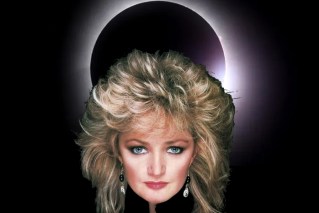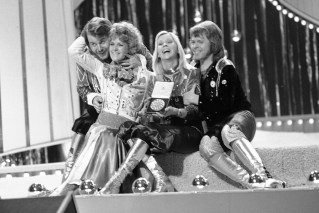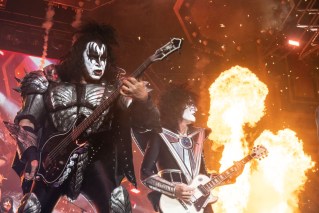Why The Black Keys are still lonely boys
When a trio of YouTube videos under the account name ‘Turn Blue’ surfaced one month ago, The Black Keys devotees were both confused and delighted. The clips feature a straw-haired hypnotist who’d give Patrick Bateman the creeps, breathing heavily and describing exactly where he’s astrally travelling within your body. (You can thank director Eric Wareheim, of Tim and Eric, for the nightmares.)
For singer and guitarist Dan Auerbach, that disturbing Lynchian humour is an apt introduction – not only for their new album Turn Blue, which is far more enigmatic, raw and thoughtfully paced than their previous release El Camino (2011), but for The Black Keys as a band.
“We sort of like things that are kind of bizarre, and sometimes ludicrous,” Auerbach says slowly. “We appreciate when people don’t take themselves too seriously. I think probably our favourite kind of humour has got to be self-deprecating.”
The fact that not all of their material was original also irked some purists, but by this stage the boys had solidified their ideas and, importantly, their predilection for recording in ways and spaces which were true to their unpolished sound.
Auerbach and his bandmate, drummer Patrick Carney, have learned that being themselves works best, even at the beginning in Akron, Ohio, when there didn’t seem to be any sort of scene which might embrace their two-piece grunge blues efforts. A stew of basement recordings, tour jaunts in a beat-up Chrysler van, and some critical interest which didn’t quite translate to dollars kept them going through the early 2000s.
“It was all about forward momentum, you know,” the singer says of the hometown days. “Sometimes it didn’t even really make logical sense why we would continue moving forward. But we just kept at it.”
The Big Come Up (2002) kept the ball rolling, but it was their ensuing records Thickfreakness and Rubber Factory (2003 and 2004 respectively) which brought The Black Keys and their thick, lo-fi scuzz onto an international platform, despite some critics not knowing how to place them against that other early 2000s rocket of unadulterated two-piece mayhem, The White Stripes.
The fact that not all of their material was original also irked some purists, but by this stage the boys had solidified their ideas and, importantly, their predilection for recording in ways and spaces which were true to their unpolished sound.
Fourth album Magic Potion (2006) was The Black Keys’ first record of completely original material, the first released on their current label Nonesuch Records, and included the hit Your Touch; Attack & Release (2008) which saw the band hiring an outside producer and recording in a studio for the first time; it ended up on a number of Rolling Stone and Billboard lists.

The duo picked up three Grammy Awards in 2013 for the album El Camino. Photo: Getty
Their next album very nearly didn’t happen at all. To Carney’s surprise and indignation, Auerbach released and toured a solo album in 2009 (titled Keep it Hid, of all things). Carney was also enduring a messy divorce from his wife of nine years, and cut himself off from his bandmate almost completely. And yet, upon finally getting themselves into the studio again, Brothers (2010) was the commercial breakthrough the two had been hooning towards for several years. It earned them three Grammy awards (amongst five nominations) and widespread critical acclaim. It’s also the album to which Auerbach compares all other recordings.
This month’s release, the keenly anticipated eighth album, was produced by auteur musician Brian Burton – better known by his stage name Danger Mouse. Burton also worked closely with The Black Keys on previous release El Camino, but Auerbach says the shift in approach and scope from one album to another was something fully supported by their collaborator.
“I think that Pat and I, we liked El Camino but we didn’t love it,” Auerbach says of the record which spawned mega-hits Lonely Boy and Gold on the Ceiling. “It felt not enough like Brothers. We both loved Brothers and that feeling that Brothers has: it’s very loose, very groove-based, the songs are really cool. And El Camino was a little bit too put together. It was too tidy. We wanted to bring back some of that looseness and raw bits that we had on Brothers when we were working without Brian. And Brian did too – he really loves Brothers and what we were doing there. So I think there was a conscious effort to keep things real loose, and go with our instincts really – not worry so much about writing catchy songs.”
While it’s true Turn Blue isn’t exactly Lonely Boy-catchy, it’s full of vivid hooks and innovative ideas which won’t leave your head, all anchored with Carney’s galvanic beats and Auerbach’s howling guitars. For the dreamy Bullet in the Brain, Auerbach says his voice is doubled and slightly altered to create that classic psychedelic sound, and stand-out It’s Up to You Now has some strange instrumentation which sounds like the Doctor Who theme music. “That one was just Pat and I,” Auerbach says. “The drum beat he had was so cool, and we had a keyboard called a Wurlitzer [which] we doubled with the bass guitar, and then added guitars on top of it. It created this kind of reedy sound.”
There are also some beautiful fade-outs which give the guys a chance to jam. “A lot of my old favourite ‘60s songs have fade-outs,” Auerbach says. “Sometimes if a song is more groove-based, and less a traditional songwriting type of song, it’s fun to fade out on the groove.”
In interviews of his own, the band’s producer has likened himself to a film director, and Auerbach warmly agrees with Burton’s ideas on how to create a place for an individual sound within the greater musical scheme.
“Because we don’t read music, I think we kind of think about music differently to a trained musician,” he says thoughtfully. “We definitely see things in colours and shapes, and it’s not necessarily musical notes. And I think we’ve learned to describe music that way to each other. You’re setting a mood, and creating an atmosphere.”
The Black Keys’ fanbase is doting but not always one-eyed, and expects inventive things – and the band have worked incredibly hard at their sound and output, despite what we might see as wariness towards success.
“I think we’re at a place now where we never really dreamed we’d get to,” says Auerbach, after eschewing the idea of ever attaining career or popular grace.
“It’s really nice; we like playing shows, we like making records. We haven’t really changed the formula much – we just keep making records, having fun, experimenting when we’re in the studio. And, you know, just being fans of music. That’s why we kind of like to do songs that are seven and a half minutes long, and fade-outs, weird instrumental breaks, you know what I mean? Just let it all go and see what might happen.”
The article appears courtesy of STACK Magazine.
Turn Blue is out now.








